A competent and confident health workforce is key to delivering quality health services, and evidence suggests that high-quality simulation-based education helps increase the confidence and competence of students and healthcare providers.
There have been concerns about the work-readiness of most of the graduating medical and nursing students in Nepal in providing quality sexual and reproductive health (SRH) services as per the national protocols. To address this, Family Welfare Division (FWD), in collaboration with WHO, Medical Education Commission (MEC), National Health Training Center (NHTC), Nepal Medical Council (NMC), Nepal Nursing Council (NNC), and other stakeholders launched a two-phase plan to strengthen the pedagogy of medical, nursing, and midwifery education.
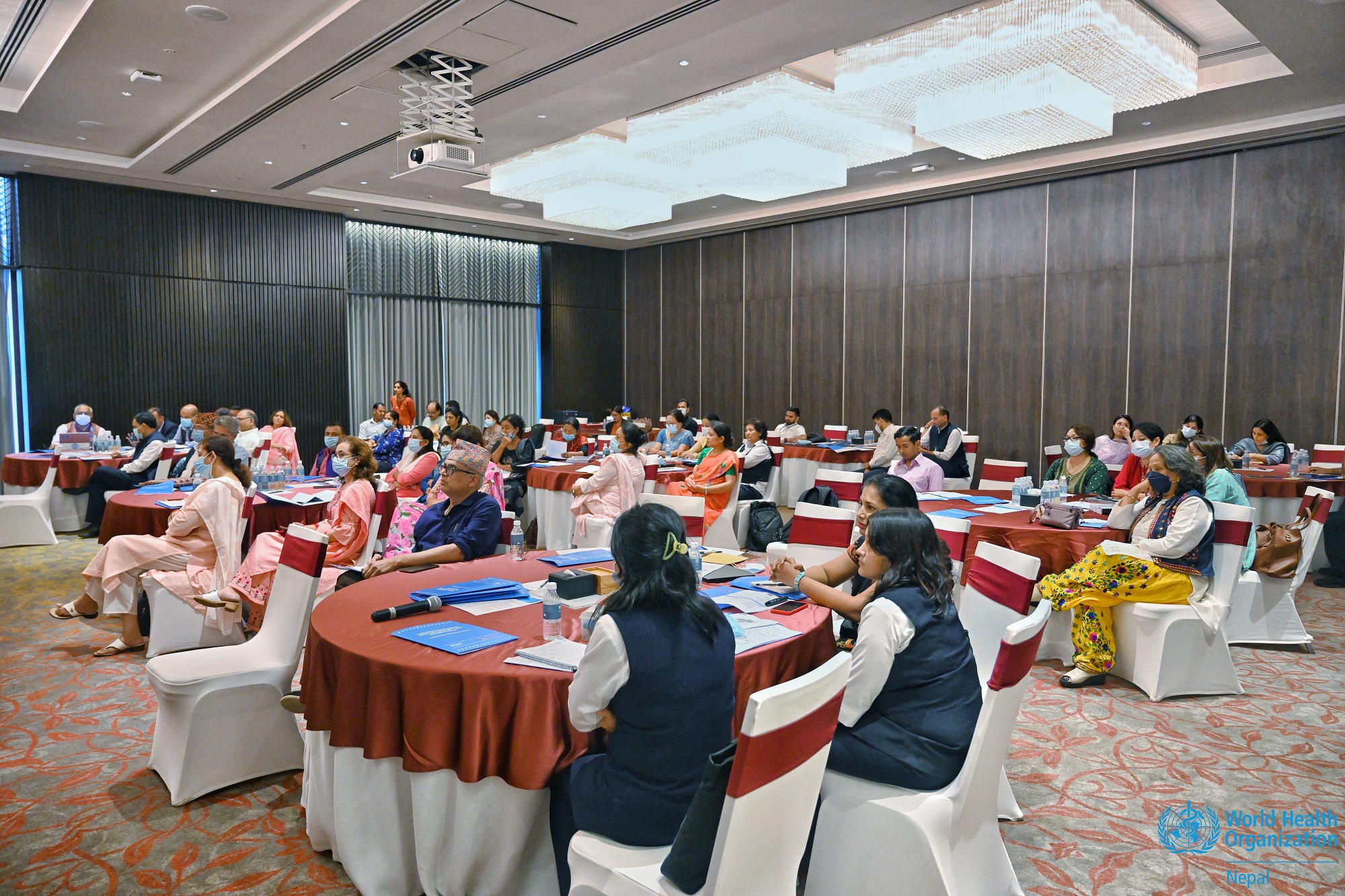
Stakeholders working to develop a two-phase plan to strengthen SRHR pre-service education in Nepal. Photo Credit: WHO Nepal/S.G.Amatya
During the first phase in 2020, WHO carried out a comprehensive needs assessment in eight academic health institutions: Pokhara University; Karnali Academy of Health Sciences; Kathmandu University; National Academy for Medical Sciences; Patan Academy of Health Sciences; Institute of Medicine, Tribhuwan University; Purbanchal University; and B.P. Koirala Institute of Health Sciences in 2020 with support from the Institute of Medicine (IOM).
The study reviewed a total of 23 curricula covering programmes for doctors, nurses, and midwives for the inclusion of sexual and reproductive health rights (SRHR). Results from the gap analysis showed inadequacies and inconsistencies in curriculum guidelines, course structure, and content for selected competencies of SRHR when compared with national and international competency frameworks. Based on the findings, it was determined that strengthening of the quality of pre-service education was necessary.
Under the leadership of the FWD and the MEC, with facilitation from WHO, technical support from Laerdal, and in consultation with relevant stakeholders, a strategy was developed to integrate SRHR competencies in pre-service medical education. This is being piloted in selected eight institutions, and entails the introduction of the competencies-based SRHR curriculum, setting up of simulation labs, and building capacity of faculty members in simulation-based education.
As of October 2022, two institutions have implemented the revisions in their respective curriculums, while the remaining have committed to implement them during their respective institutional curricula revision dates (2022-2025).
Similarly, 170 medical, nursing, and midwifery faculty have been trained on simulation-based education and skills related to SRHR. The trained faculty is further being supported to cascade the training to other members and integrate the methodology into existing and new training courses. Through the mentoring sessions, 100 more medical, nursing, and midwifery faculty members have been trained.
WHO, Country Office in Nepal, also provided funds to support the equipping of the skills labs with manikins and other equipment. All the institutions have begun operating their existing lab setup, while five of the institutions are planning for new constructions and renovations.
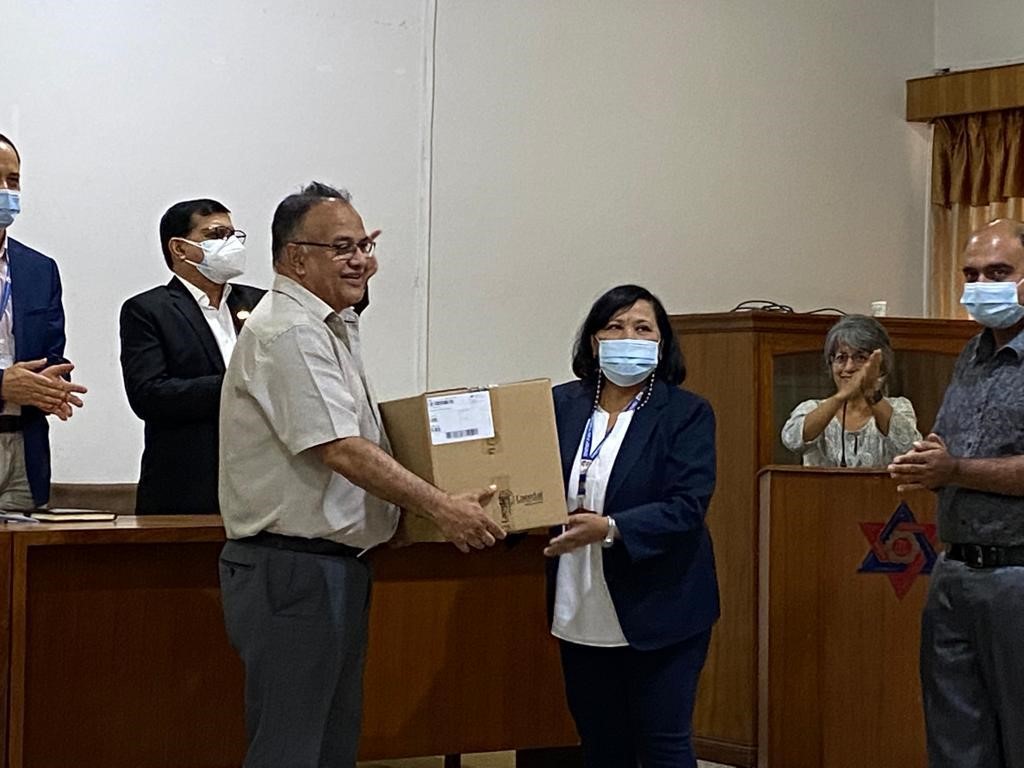
A glimpse of the handover of manikins. Photo Credit: WHO Nepal
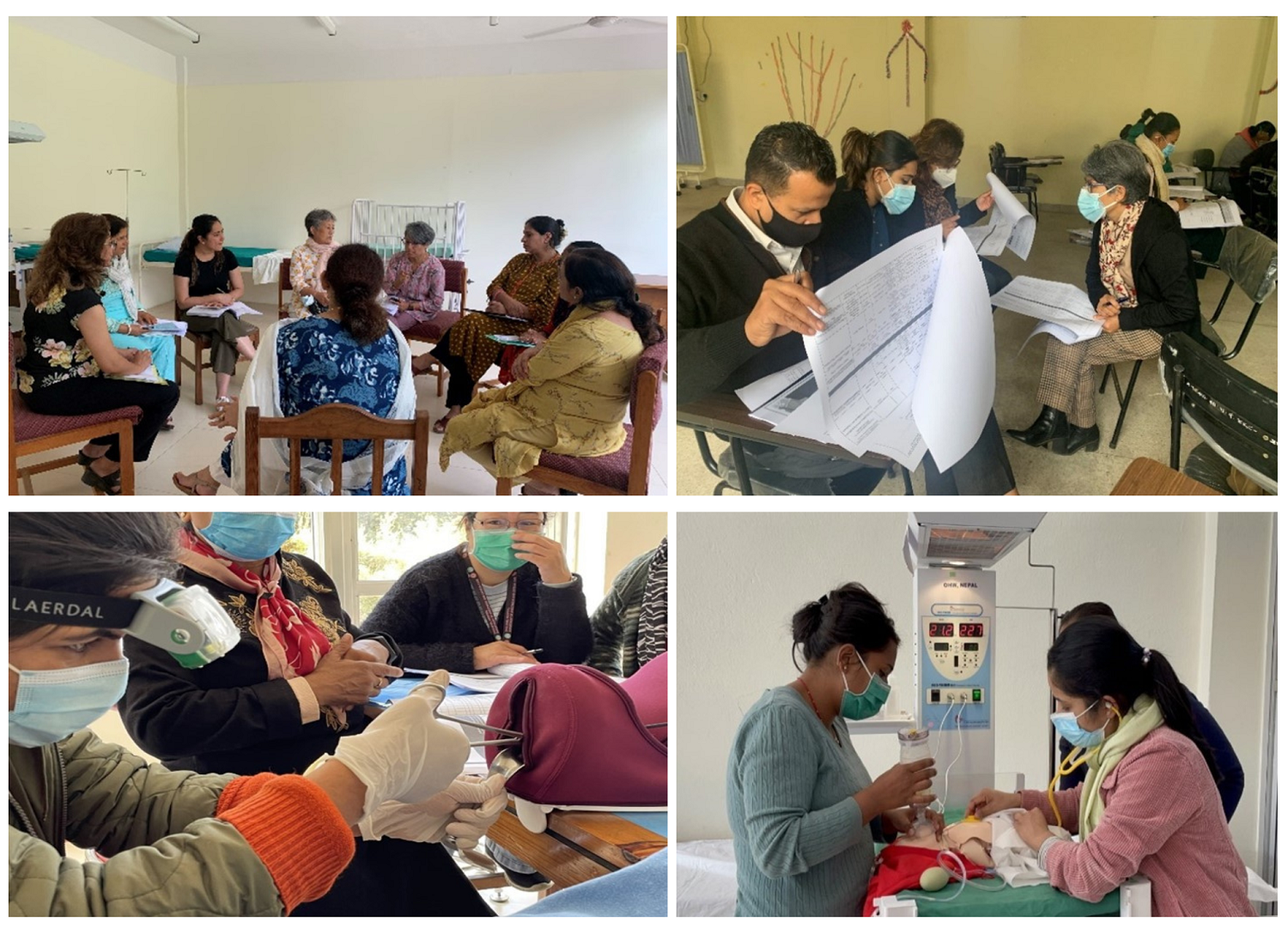
Training of faculty members. Photo Credit: Laerdal
The project has been met with great enthusiasm by the Ministry of Health and Population, provincial governments, university leadership, administration, and faculty, who were able to impart their knowledge to students and practitioners after receiving the training.
In an experience-sharing workshop held on 31 August 2022, Ms Sharada Aryal, Vice-President of NNC, shared her confidence that the efforts will help produce a competent workforce, while Dr Bibek Kumar Lal, Director of FWD, reiterated FWD’s commitment to support the institutions to strengthen SRHR pre-service education and to continue and scale up its implementation in a sustainable manner.
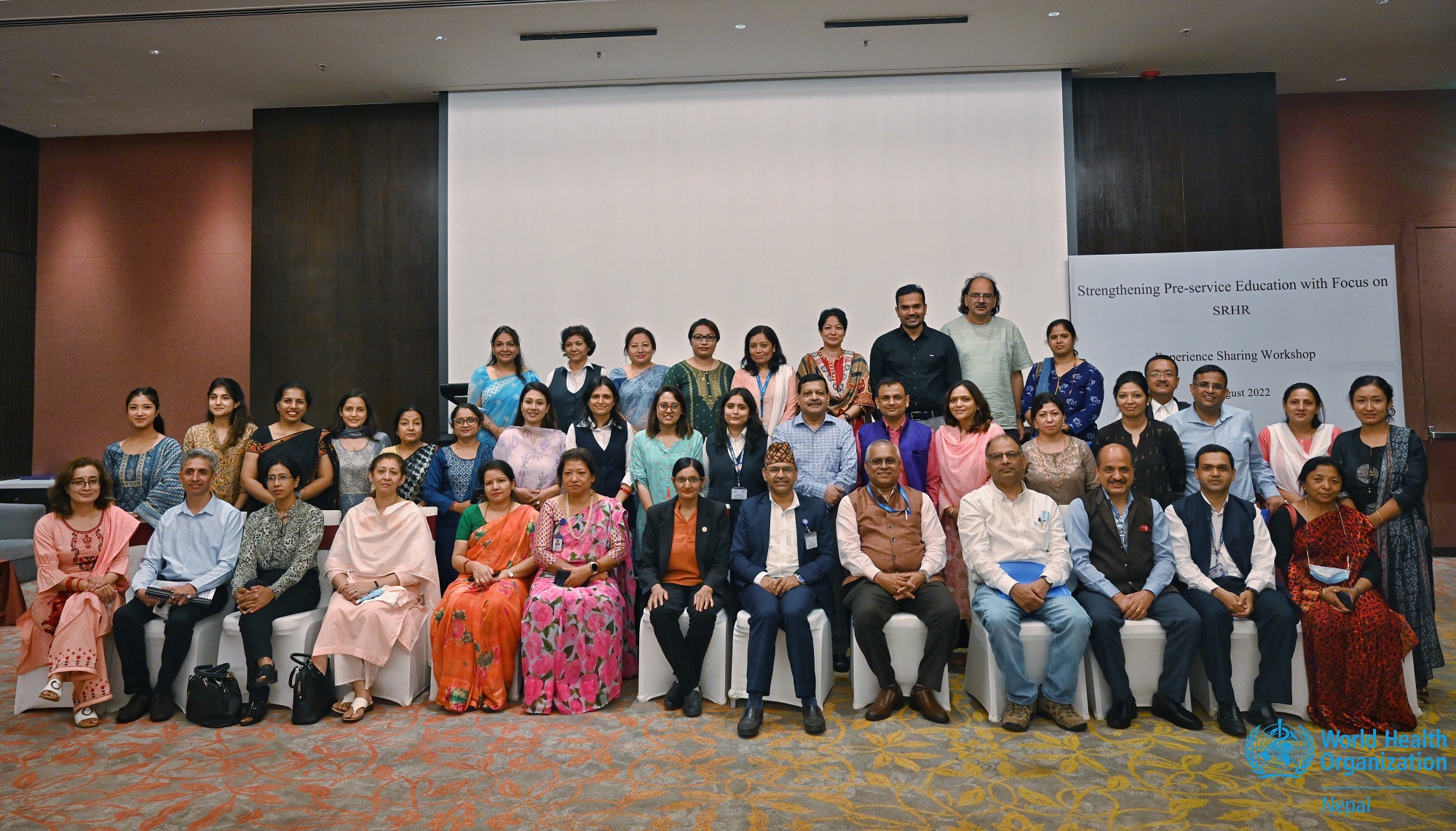
Participants in the experience-sharing workshop. Photo Credit: WHO Nepal/S.G.Amatya
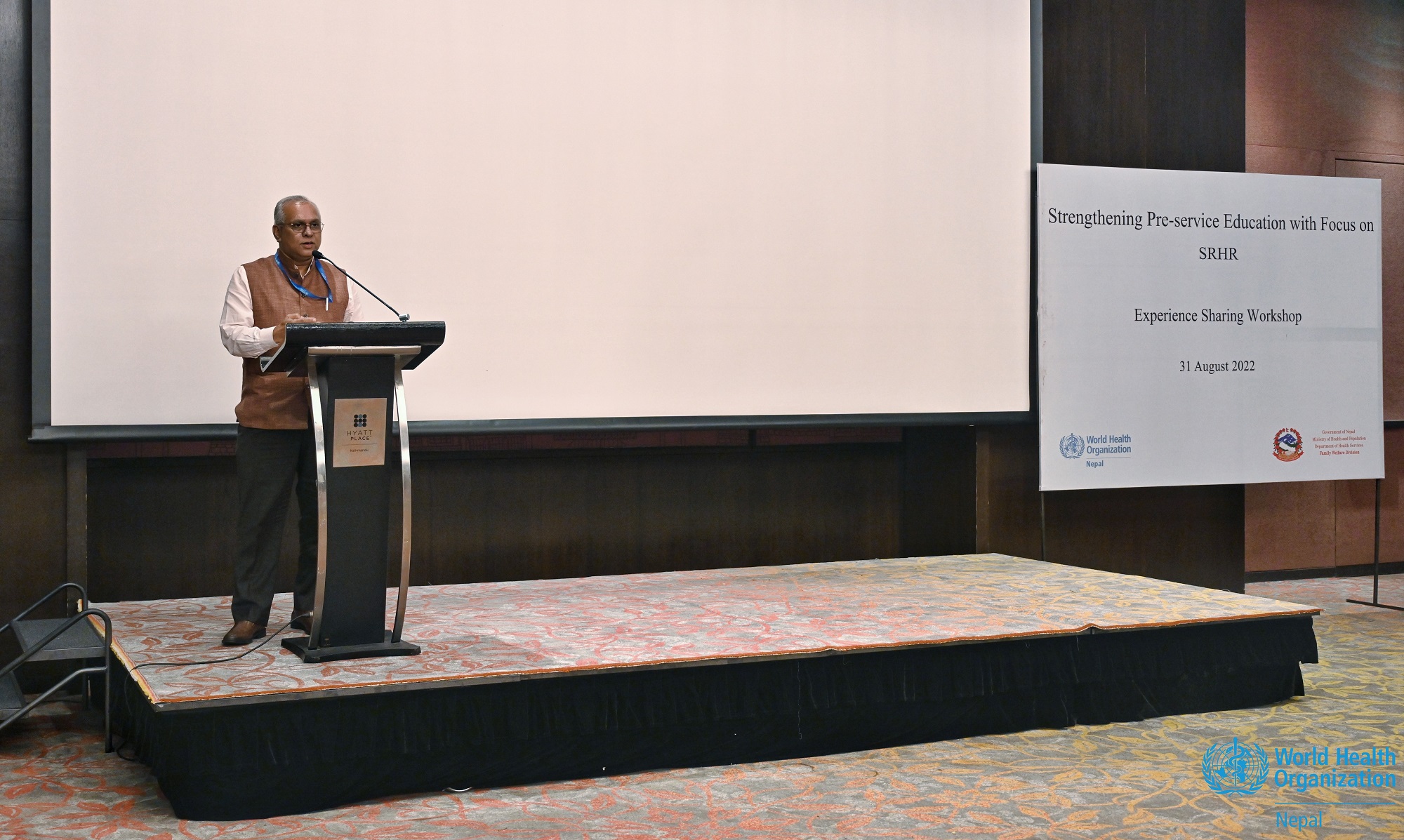
WHO Representative to Nepal providing his remarks at the experience-sharing workshop held in Bagmati Province, Nepal. Photo Credit: WHO Nepal/S.G.Amatya
“Integration of such simulation-based education into the curricula with a guiding framework can be applied to curricula beyond the SRHR component", said Dr Rajesh Sambhajirao Pandav, WHO Representative to Nepal. “WHO is proud to have supported this initiative, which will ultimately contribute directly or indirectly to the provision of quality SRHR services to benefit the people of Nepal.”
